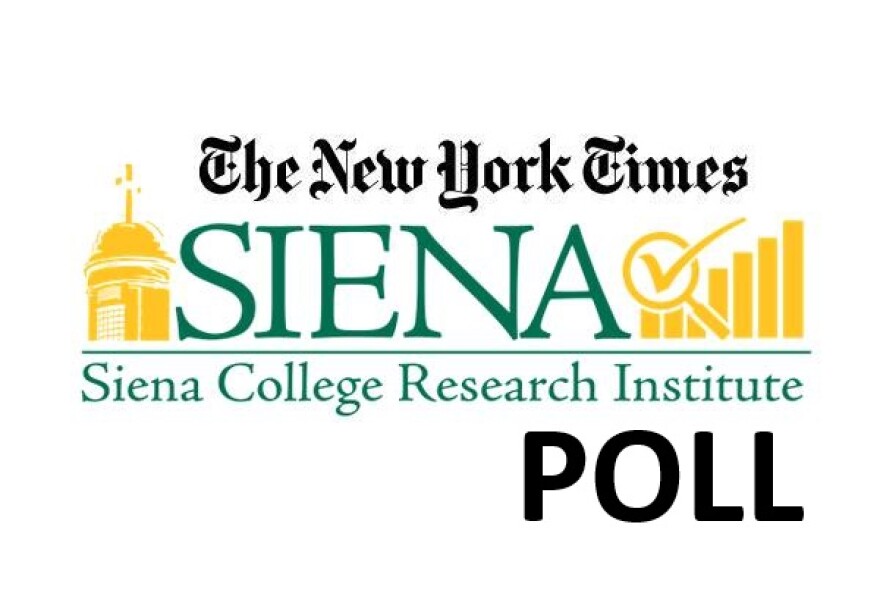A new poll finds Americans increasingly worried about free speech rights.
84% of respondents to a new national New York Times Opinion/Siena College Poll say Americans being afraid to exercise freedom of speech is a very serious or somewhat serious problem. Pollster Don Levy says that over half of those surveyed say they've held their tongue in social situations... "...because they're afraid of retaliation, criticism, or simply to avoid conflict, and right now a plurality say that they are less free today than they were 10 years ago to express themselves on issues including politics and race." Levy said "When we asked respondents to think about the Four Freedoms made famous by Franklin Delano Roosevelt, we find that only one-third of Americans in this national survey, only one-third of Americans, say that they think all Americans completely enjoy freedom of speech. Half say that they enjoy freedom of religion, but noteworthy, even fewer, only 17% think that all Americans enjoy Freedom from Want and fewer, 11%, believe that Americans are completely free from freedom from fear.”
Levy notes 55% of Americans say they have held their tongue over the last year because they were afraid of retaliation, being harshly criticized, or in order to avoid conflict. Of that group, 57% are concerned about retaliation, 65% are concerned about being harshly criticized and 94% kept silent to avoid conflict. Nearly a quarter of all Americans, 22%, reported restricting their freedom of expression for all three reasons.
But ongoing culture wars don’t actually mean there are any new limits on the First Amendment. As many public figures and others have learned, though, there can be quick-moving consequences for questionable statements.
Vincent Bonventre is a professor of law at Albany Law School. He says he's not surprised by the results of the poll. “It seems to reflect what Americans actually are thinking, whether it ought to be as much of a concern is a different story," said Bonventre. "But you know, with the country being so polarized along cultural lines, political lines, religious lines, you know, it's not surprising at all, that, you know, somebody would make a comment that that person might think, to be totally innocent, and yet, someone might take offense, someone might get angry, someone might even want to retaliate. And we've all seen that happen.”
Bonventre believes social media has emboldened many people to express polarizing viewpoints, posting opinions and saying things they wouldn't ordinarily say face to face.
Levy says the survey found 70% of those polled feel safe to express themselves when among family or friends. “But that's it. When we move over to communicating with friends online, at work, as we move about the community, there's a reluctance, there's a concern that we are not free to express ourselves," Levyu Said. "And we asked ‘how about you? Have you ever retaliated against someone because of something that they've said?’ And one out of four of us say that that is indeed the case. Looking forward, do we think that free speech is a cornerstone of our democracy and should be protected? 66% of us say that absolutely. But right now almost a third, 30% of us, say that it's time to talk cut down some forms of speech that are either anti-democratic, bigoted or simply untrue.”
Bonventre says Americans should listen more and try to understand people with different views. “And it might not be for the kind of despicable or detestable reasons that we think, you know, so again, you know, listen to people, try to understand them a little better," said Bonventre. "You know, it's much easier to say that than it is to do that, especially again with the fact that we are so divided along cultural, political, religious, social lines.”
Again, Levy: “Strikingly, when we asked respondents to think about 11 forms of controversial speech, including things like teaching students the history of racism, or questioning the scientific credibility of public health officials," Levy said. "And we said ‘do you think that most people you know support or oppose a person's right to engage in that speech,’ and we reminded them that those forms of speech were constitutionally protected, no single form of controversial speech was supported by more than 71%. And in fact only 1% of the people that we polled across the United States support a person's right to engage in each and every one of those controversial forms of free speech.”
Bonventre says the survey exposes people's concerns.
“On the other hand, I think that there are probably reasons where we should be somewhat less concerned, and we should be less worried about speaking our mind," Bonventre said. " As long as what is what we are saying is somewhat thoughtful, and somewhat reasoned. If we’re gonna say things that are totally bigoted, totally sexist, well, we should probably expect some kind of unfavorable reaction.”
Related commentary by Siena College President Dr. Chris Gibson:
President Gibson Related Commentary in the Times Union
The New York Times Opinion article:
New York Times Opinion Free Speech Article






